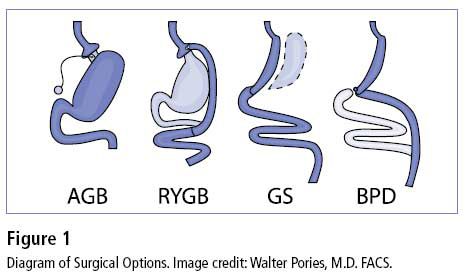Physiology
Are You a Candidate For Weight-Loss Surgery?
Weight Loss Surgery Isn’t For Everyone
What It Means to Be a Candidate For Weight Loss Surgery
Everyone is not a candidate for weight loss surgery. A candidate for surgery is healthy enough to tolerate the procedure, is heavy enough to need the surgery, and is expected to be able to handle the recovery and rapid physical changes that happen after the procedure.
While the final decision of whether or not you should have weight loss surgery is made by your surgeon, there are general guidelines that most surgeons and insurance companies adhere to when choosing who is an appropriate patient.
It is possible for your surgeon to state that you are an excellent candidate and for your insurance company to determine that you do not qualify for surgery. In that case, while your surgeon is willing to perform surgery, your insurance company would refuse to pay for the procedure. You could potentially pay out of pocket, but the costs are considerable.
Are You Physically a Good Candidate for Weight Loss Surgery
Surprisingly enough, patients can actually be too obese and not obese enough to qualify for weight loss surgery. Those who are too heavy are instructed to lose weight before the surgeon can proceed with the operation, while patients who are too thin are advised that the risks of surgery outweigh the benefits in their case. Your surgeon can advise you if weight loss is necessary prior to surgery.
While a few centers in the United States are performing weight loss surgeries on patients under the age of 18, most surgeons prefer to wait until the patient is older and better equipped to make a life-altering decision.
If you have other health conditions, such as diabetes or another disease process, these conditions may prevent surgery if they are not well controlled or dramatically increase your surgical risk. Your surgeon will take your unique health history and current state of health into account when determining if you are a good candidate for a procedure to lose excess weight.
General Guidelines for Weight Loss Surgery Candidates:
- BMI of 40 or greater
- Comorbidity: You have a life-shortening disease process, heart disease, diabetes or obstructive sleep apnea, that can be improved by losing weight.
- For at least two years, you have attempted to lose weight.
- You have been obese for an extended period of time, at least three to five years.
- You are able to effectively care for yourself and follow a physician’s instructions.
- You are motivated to lose weight and maintain a healthful lifestyle.
- You do not abuse drugs or alcohol or have other physical addictions
- You are a nonsmoker or have quit smoking.
- You are an adult under the age of 65.
- You are willing to participate in counseling prior to the procedure and after surgery.
If you meet these guidelines, you may be a candidate for weight loss surgery. Your surgeon will be the one to make the final decision; however, this list should help you determine if you meet the criteria.

